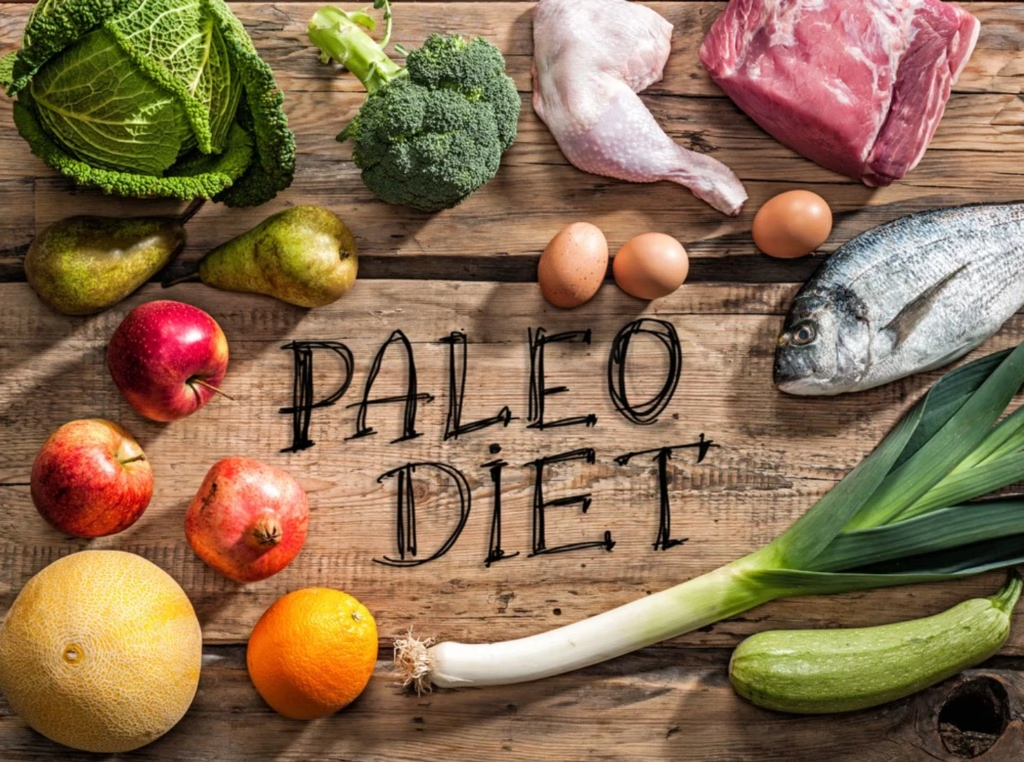Navigating the Hidden Risks in Popular Diet Trends
While the keto, carnivore, and paleo diets may seem appealing for weight loss or health benefits, it’s crucial to consider their potential risks. These diets can lead to serious health issues, including elevated cholesterol levels, kidney stones, and vitamin deficiencies. Prioritizing a balanced diet is essential for maintaining overall health and well-being.

Risk of Keto Diet
- Cholesterol: Keto diets may raise LDL cholesterol levels, potentially harming heart health.
- Kidney stones: Keto diets can increase the risk of kidney stones
- Nutrient deficiencies: Keto diets can cause nutrient deficiencies
- Low blood pressure: Keto diets can cause low blood pressure
- Constipation: Keto diets can cause constipation
- Pancreas, liver, thyroid, or gallbladder conditions: Keto diets are not safe for people with conditions affecting these organs
The ketogenic (keto) diet, which is high in fat and protein but low in carbohydrates, does not meet the standards for a healthy diet and may not be safe for some individuals with heart disease, according to a review published in the March 2024 issue of *Current Problems in Cardiology*.
The review summarized current evidence regarding the potential risks of keto diets for heart disease. Although this diet may lead to significant short-term reductions in fat mass and weight, there is limited evidence supporting any long-term benefits. Ketogenic diets are associated with decreased blood levels of triglycerides; however, they may also increase LDL cholesterol levels, which can clog arteries. While short-term improvements in blood sugar and blood pressure have been observed, these benefits tend to diminish over time.
The diet’s strict restrictions on carbohydrates may lead individuals to avoid most fruits and vegetables, instead consuming large quantities of leafy greens. However, the vitamin K found in these greens can interfere with the anti-clotting medication warfarin, which some heart patients take. Additionally, medications known as SGLT-2 inhibitors, used to treat diabetes and heart failure, may not be compatible with a keto diet, as noted in the review.. (Keto diet is not healthy and may harm the heart – Harvard Health)

Carnivore Diet
- Digestive issues: The carnivore diet can cause digestive issues
- Vitamins and mineral deficiencies: The carnivore diet can cause vitamin and mineral deficiencies
- Liver and kidney stress: The carnivore diet can stress the liver and kidneys
- Cancer: The carnivore diet has been linked to certain types of cancer, including colorectal cancer
- Cholesterol: The carnivore diet can increase LDL cholesterol
RISK OF CARNIVORE DIET
If you’re considering trying the carnivore diet, know it’s associated with some very serious risks, says Nicole Harkin, M.D., a cardiologist in San Francisco. These include:
Heart Disease
The carnivore diet may increase the risk of developing heart disease because it focuses on foods high in saturated fat, such as fatty steaks, which can raise cholesterol levels, according to Arsenault.
Additionally, the removal of fruits, vegetables, beans, nuts, and seeds from the diet could further elevate this risk. Harkin points out that these food groups have consistently been associated with lower rates of heart disease and other chronic illnesses.
Furthermore, eliminating fruits, vegetables, and whole grains can lead to metabolic acidosis—a condition characterized by excessive acidity in the body fluids. This condition can negatively affect kidney function and increase the risk of developing diabetes.
Vitamin and Mineral Deficiencies
You may experience vitamin and mineral deficiencies due to this restrictive diet, Brikho says. Without plant-based nutrients, it can be challenging to obtain the necessary vitamins A, C, and B12 in your daily intake.
Digestive Health Issues
Limiting your diet to only animal products can lead to nausea and various other side effects. One potential issue is constipation, which arises from a reduced intake of fiber, as fruits, vegetables, and whole grains are excluded from your diet.
Fiber is important for digestive health; a lack of fiber can result in digestive issues and imbalances in the gut microbiome. Over time, this can increase the risk of chronic physical and mental health problems.
Serious health risks associated with a low-fiber diet include coronary heart disease, hypertension, and even some types of cancer.

Paleo diet
- Calcium and vitamin D deficiencies: The paleo diet can cause calcium and vitamin D deficiencies, which can be bad for bone health
- Kidney and heart disease: The paleo diet can increase the risk of kidney and heart disease
- Cancer: The paleo diet can increase the risk of certain cancers
Risks associated with the Paleo Diet
1) Low to moderate carbohydrate intake.
Hidden danger: The Paleo diet excludes cereal grains, including wheat, rye, barley, oats, corn, and brown rice, among others. While these grains are excellent sources of fiber, B vitamins, iron, magnesium, and selenium, they also play a significant role in helping our bodies manage blood sugar, lower cholesterol levels, and reduce the risk of chronic diseases. A consistent low carbohydrate intake can lead to an overreliance on fat for energy, a state known as ketosis. Ketosis occurs when by-products of fat breakdown, called ketones, accumulate in the bloodstream. High levels of ketones can result in dehydration and potentially severe metabolic disturbances, including coma.
Moreover, following a low to moderate carbohydrate diet can make exercise challenging for those adhering to the Paleo diet. Our bodies primarily utilize carbohydrates for fuel during aerobic activities—such as running, biking, swimming, and walking. If the diet lacks sufficient carbohydrates, the body resorts to burning both fat and muscle for energy. This process can lead to a decrease in muscle mass, which is essential for boosting metabolism and increasing daily calorie expenditure. Symptoms such as physical fatigue and exhaustion, both during exercise and throughout the day, may indicate muscle breakdown.
2) Restriction of dairy products
Hidden danger: Dairy restriction may cause deficiencies in calcium and vitamin D, essential for bone health.
3) Saturated fats are suggested in very generous amounts
Hidden danger: Consuming the recommended amount of saturated fats in the Paleo Diet may increase the risk of kidney and heart disease, as well as certain types of cancer.
4) High intake of red meat and high-fat meat
Hidden danger: Research, both past and present, indicates that a high intake of fatty meats and saturated fats can increase LDL (bad cholesterol) levels and elevate the risk of bowel cancer. According to the American Heart Association, adults should limit their saturated fat intake to approximately 13 grams per day. In contrast, following a Paleo diet can lead to a saturated fat consumption of nearly 50 grams per day.
5) Segmentation of “good” and “bad” foods
Hidden danger: A universal “best diet” approach is ineffective and can be harmful for many individuals, particularly those who tend to think in black and white or adopt an all-or-nothing mindset. Labeling foods as “good” or “bad” can create feelings of guilt, shame, and low self-esteem when the established dietary rules are violated.
In conclusion, adopting a diet similar to that of our ancestors is not necessary for maintaining a healthy lifestyle; in fact, it may even have negative effects, as previously discussed. While those who lived millions of years ago may have thrived on such a diet, evolution has changed our genetic makeup and how we digest food.
If you are considering altering your eating habits, it is essential to take your health history and nutritional needs into account. A professional dietitian can help you develop a plan that is tailored to your unique lifestyle and requirements.
